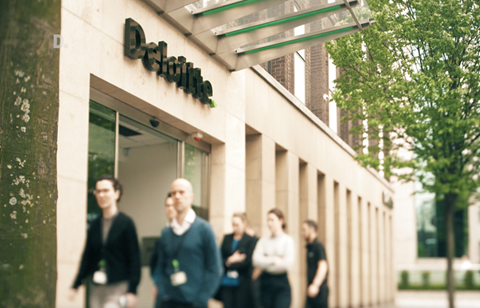
Professional services firm Deloitte Ireland currently runs 15 different sports and social clubs, available for all employees. The organisation has 2,500 employees across five locations in Belfast, Cork, Dublin, Galway and Limerick, around 2,000 of whom are based in Dublin.
Among the most popular is its running club, which has 80 members and meets 15 to 20 times a year to participate in group runs or events. The football club enjoys a healthy membership of 52 staff, 20 of whom compete in the Deloitte World Cup, held in Prague each summer. The skiing club, meanwhile, takes an annual trip to the Alps, most recently in February 2019, when 40 members attended.
Deloitte Ireland’s golf club has one of the largest memberships, of just under 100 people. Uniquely, this group is also open to individuals who have retired from the organisation.
Employees also have the opportunity to join a culture club, which provides theatre trips and outings to local food and drink events.
These groups are an essential part of promoting positive social wellbeing. This is important because 20% of the workforce are not originally from Ireland, and may not have an established local network of friends and family.
Torunn Dahl, head of employee relations, engagement and inclusion at Deloitte Ireland, explains: “People get exercise for their own health, but [they] get to network and meet people who aren’t necessarily in [their] team. A lot of these activities happen outside of work hours, so it gives people something to go to if they don’t have many of their own social contacts within the city.”
Aside from these social benefits, and the corresponding impacts on mental health, sports and social clubs can influence employees’ financial wellbeing, because Deloitte Ireland subsidises club activities, says Dahl. For example, the employer covers entry fees for running events and provides a discounted rate for golf outings.
This is particularly useful for the firm’s graduate population. “For people at the start of their career where finances are much tighter, it is really important [because] this enables them to do all of these sports activities without having to be a member of [an external] club, which can be quite expensive,” Dahl explains.
The clubs at Deloitte Ireland have, in the main, been created organically, either by employees with shared interests or due to a link with corporate social responsibility (CSR) events such as charity runs. Nevertheless, the organisation also factors in feedback from its employee engagement surveys, which are conducted every two years, most recently in September 2017.
The clubs are actively promoted via the staff intranet, a weekly email newsletter, on-site posters and during new starter inductions.
The clubs have been found to create a stronger sense of belonging and inclusion, explains Dahl: “It helps [employees] find [their] place within an organisation if [they] know people and have a shared interest with them, particularly nowadays where everybody’s plugged in online all the time.
"It just creates time in the week where [employees] go and completely unplug, do something that’s for [them] and that’s away from the desk.”
Read more...
What role can workplace sports and social clubs have within a wider health and wellbeing strategy?











